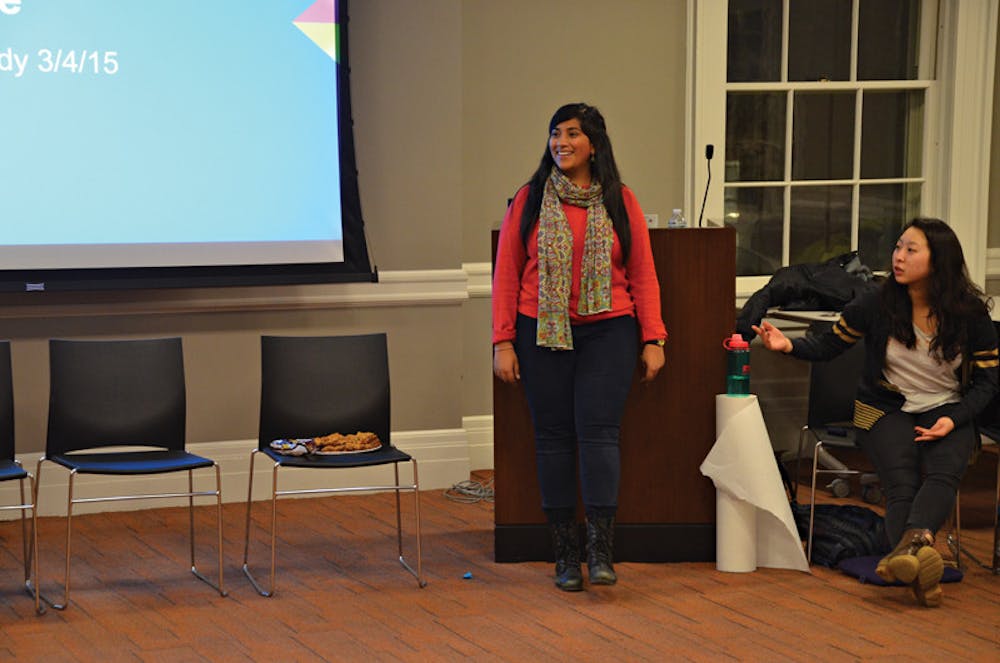The Undergraduate Council of Students decided not to adopt a formal position on the new details surrounding the Phi Kappa Psi case revealed in The Herald this week, said UCS President Maahika Srinivasan ’15 at the UCS general body meeting Wednesday.
Following extensive discussion amongst the UCS Executive Board Monday about “whether or not as a council we should take a stance … in an official UCS capacity,” Srinivasan said she does not believe the council could reach a consensus yet.
“The inherent problem is that to comment on the nature of the case is very difficult and kind of nebulous for us to do” due to a lack of some “concrete facts,” Srinivasan said, adding that individual reactions from general body members are still important and encouraged.
“The Sexual Assault Task Force is not being utilized in the way it should be utilized in this situation, and I think that needs to be clearer that that can’t be a scapegoat for the mishandling of this case,” said Justice Gaines ’16, a member of the task force and a UCS general body member. It seems the University is not basing its approach on any precedent for dealing with cases involving tests for date-rape drugs, he added.
Sazzy Gourley ’16, UCS vice president and chair of the UCS Outreach and Advocacy Committee, presented suggestions generated at Tuesday’s OAC meeting for improving the council’s structure and purpose. Next week, three OAC subgroups will form to examine the council’s current model and history, as well as student government models at peer institutions, Gourley said.
The subgroups will reconvene before spring break at a “tipping point,” when the council will reassess the timeline for its initiatives and decide whether to “present some concrete recommendations to the general body,” he added.
“A lot of these ideas are contradictory,” Srinivasan said, since the OAC’s efforts remain in the brainstorming phase. Suggestions include making council meetings distinct from open forums and decreasing the size of the UCS general body.
Srinivasan also gave a general overview and fielded questions about the Winter Term Working Group, the launch of which Provost Vicki Colvin announced in a Feb. 20 email. The group is considering an optional term in January, in which students could take one or two for-credit classes that would meet daily, Srinivasan said, adding that the term would allow for accelerated graduation and alignment with Rhode Island School of Design’s academic calendar.
Srinivasan told the general body to save any “editorializing” for next week’s meeting, when the council will break into smaller discussion groups in order to “have a definitive thing to say about whether or not we should have a winter term.”
The council should aim to generate “a document to parse through the range of opinions … about all of the implications a winter term would have on the undergraduate student body,” Srinivasan said. The working group will host a forum for undergraduates March 18.
During committee updates, Srinivasan announced that the Sarah Doyle Women’s Center will offer a designated wellness space to bring together mental and physical health resources on campus, including Yoga and Mindfulness, Brown University Relaxation Project and Brown University Mediation Project.





